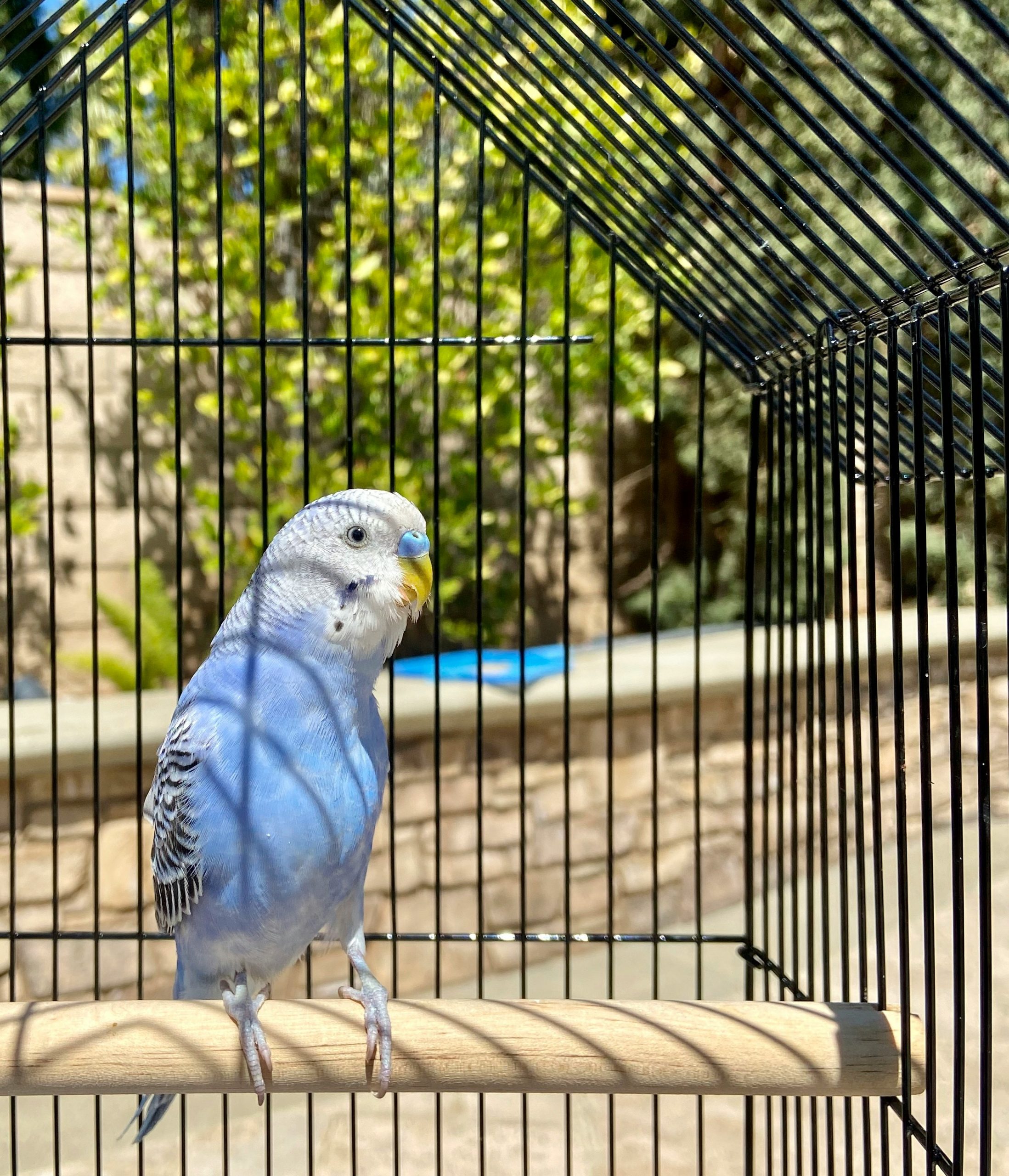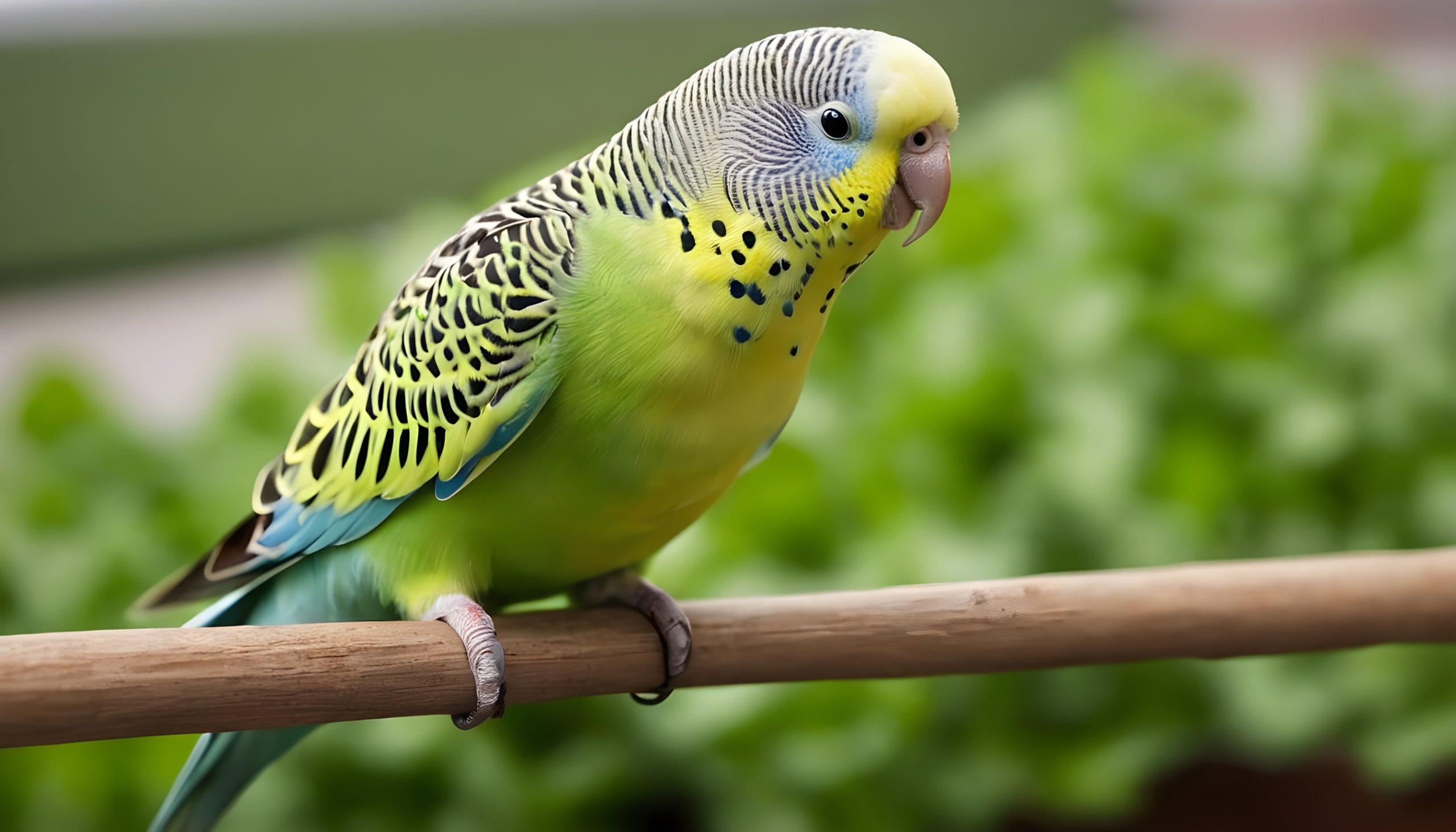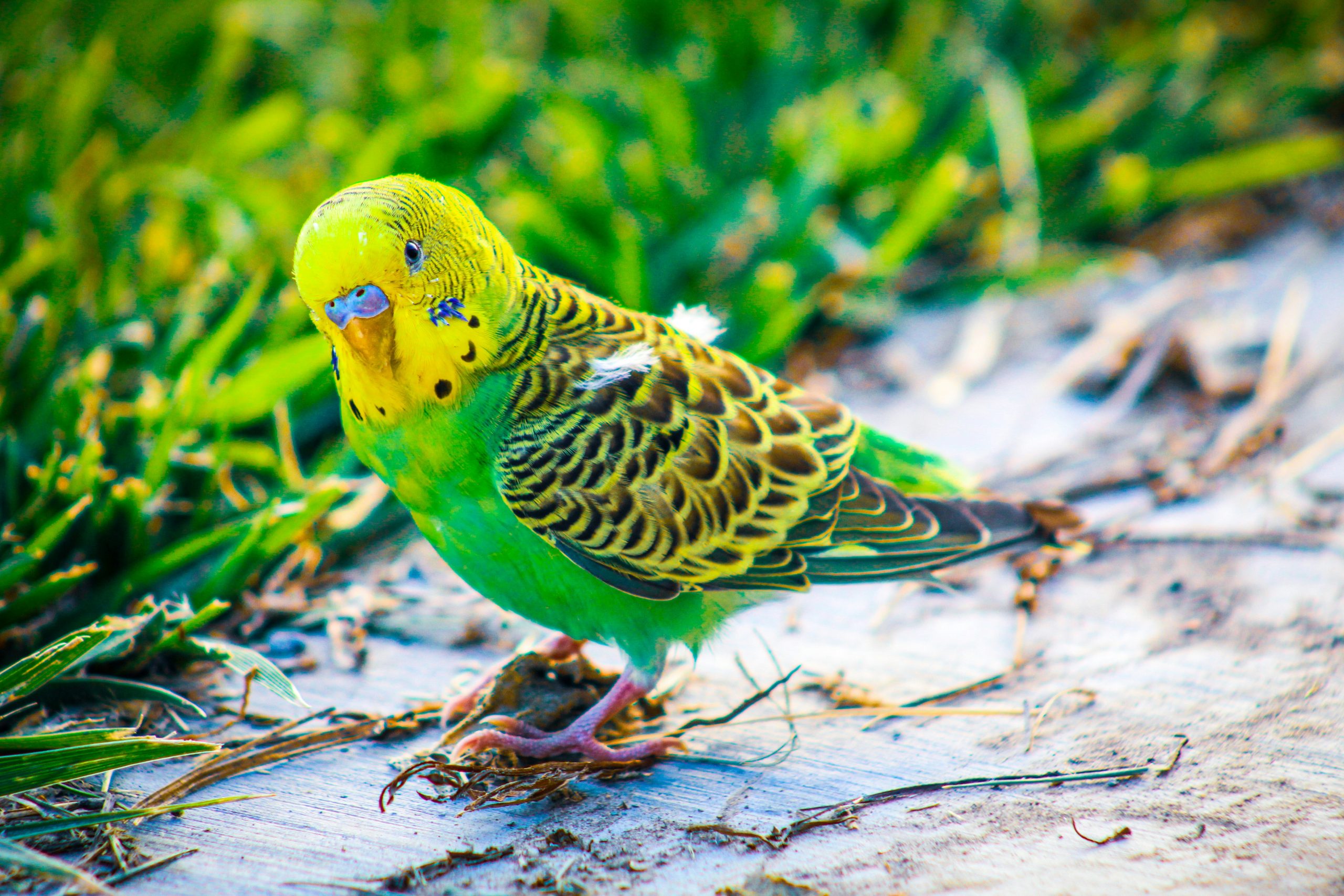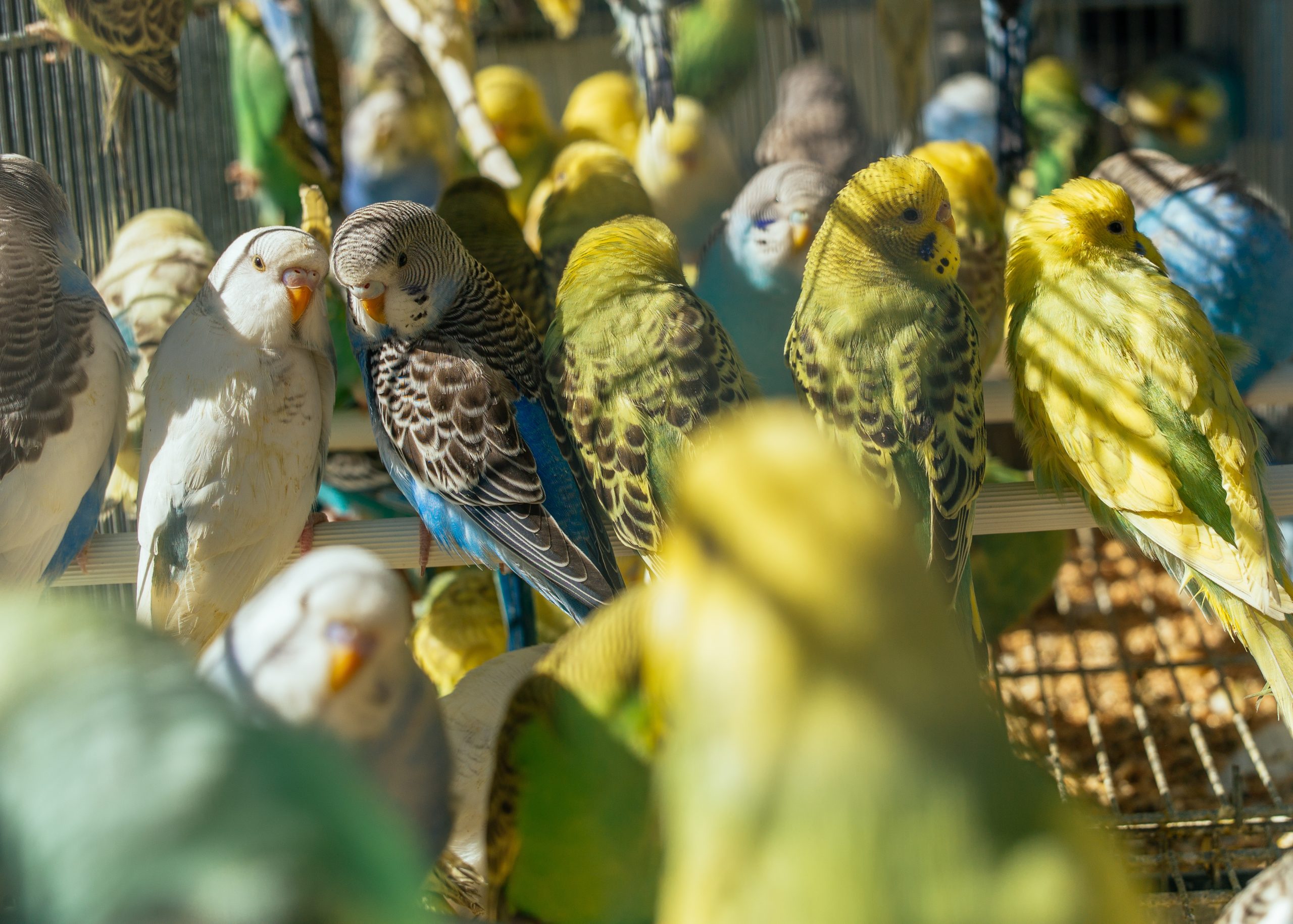Yes, can budgies eat corn on the cob. However, it’s essential to remove the kernels from the cob to prevent any potential choking hazards.
Budgies, also known as parakeets, are popular pet birds known for their vibrant colors and playful personalities. As a responsible budgie owner, it’s important to understand their dietary needs and what foods are safe for them to consume. One common question that arises is whether budgies can eat corn on the cob, a staple in many households. In this comprehensive guide, we’ll explore the answer to this question and provide valuable insights into feeding corn to your feathered friend.
Expert Opinion on Corn for Budgies:
A Treat with Reservations: Avian veterinarians generally have mixed opinions on corn for budgies. While fresh corn kernels can be offered occasionally, it’s not a highly recommended food source. Here’s why:
- Limited Nutrition: Corn is primarily carbohydrates and lacks essential vitamins and minerals that budgies need for optimal health.
- Digestive Issues: Excessive corn consumption can cause digestive problems like diarrhea in budgies due to its high starch content.
- Choking Hazard: Large corn kernels can pose a choking hazard for small birds like budgies.
Alternatives are Better: Experts generally recommend offering a wider variety of vegetables with higher nutritional value for budgies.
Fresh Corn in Moderation (if at all): If you choose to offer fresh corn, vets advise:
- Only Kernels: Discard the cob, as it’s difficult for budgies to digest and can cause injuries.
- Small Amounts: Offer only a few kernels at a time due to the low nutritional value and potential digestive issues.
- Monitor Closely: Watch for any signs of digestive discomfort after consuming corn and adjust intake accordingly.
Popcorn and Dried Corn are Off-Limits: Avian vets strongly advise against offering popcorn and dried corn to budgies. Here’s why:
- Popcorn: The hard texture and salty flavor of popcorn can irritate a budgie’s digestive system and beak.
- Dried Corn: Dried corn kernels are even harder than fresh and pose a significant choking hazard.
Case Study: The Case of the Corn-Obsessed Budgie
Here’s a fictionalized case study to illustrate the risks of excessive corn consumption:
- Patient: Cheeky, a curious budgie who discovered a discarded popcorn kernel.
- Symptoms: Loss of appetite, lethargy, and watery droppings.
- Cause: The owner, unaware of the dangers, offered Cheeky several pieces of popcorn over a few days.
- Treatment: The veterinarian diagnosed digestive upset caused by excessive popcorn intake. They prescribed medication to manage the symptoms and recommended a stricter diet with limited carbohydrates.
- Outcome: Cheeky recovered after a few days of medication and transitioned back to a healthy diet with fresh vegetables and a balanced seed mix.
Lessons Learned:
- Corn, especially popcorn and dried corn, is not a suitable food for budgies.
- Fresh corn kernels can be offered occasionally in very small quantities, but there are better alternatives with higher nutritional value.
- Always consult a veterinarian before introducing new foods to your budgie’s diet.
- Monitor your budgie’s droppings and behavior for any signs of illness after consuming new foods.
Note: This case study is for illustrative purposes only and should not be taken as a substitute for professional veterinary advice.
Do Budgies Like Corn on the Cob?
Many budgie owners have reported that their birds seem to enjoy eating corn on the cob. The sweet and crunchy texture of the corn kernels can be appealing to budgies, and they often peck at the corn with enthusiasm. However, it’s important to note that not all budgies may share the same fondness for corn. Like humans, budgies have individual preferences, and some may not be particularly interested in this treat.
Is Corn on the Cob Good for Budgies?
Corn on the cob can be a healthy treat for budgies when offered in moderation. It provides various nutrients that are beneficial for their overall well-being. Here are some of the nutritional benefits of corn for budgies:
Nutritional Value of Corn
| Nutrient | Amount (per 100g) |
|---|---|
| Carbohydrates | 19.0g |
| Protein | 3.2g |
| Fiber | 2.7g |
| Vitamin C | 6.8mg |
| Vitamin B6 | 0.1mg |
| Magnesium | 37mg |
| Phosphorus | 89mg |
As you can see from the table, corn on the cob is a good source of carbohydrates, which provide energy for budgies’ active lifestyles. It also contains a moderate amount of protein, essential for feather growth and overall health. Additionally, corn is rich in fiber, which aids in digestion and helps maintain a healthy digestive system for budgies.
Vitamin and Mineral Content
Corn on the cob is also a good source of various vitamins and minerals that are important for budgies. It is particularly rich in vitamin C, which supports a strong immune system and aids in the absorption of iron. Corn also contains vitamin B6, which is crucial for proper feather development and overall metabolism.
Furthermore, corn on the cob provides a good amount of magnesium and phosphorus. Magnesium plays a role in bone and muscle health, while phosphorus is essential for strong bones and egg production in female budgies.
Antioxidant Properties
Corn on the cob also contains antioxidants like lutein and zeaxanthin, which are beneficial for eye health and can help protect against oxidative stress. These antioxidants may contribute to the overall well-being of budgies by supporting various bodily functions.
Are There Any Risks to Budgies Eating Corn on the Cob?
While corn on the cob can be a nutritious treat for budgies, it’s important to be aware of potential risks and take necessary precautions.
Choking Hazard
The cob itself can pose a choking hazard for budgies if they try to ingest it whole or in large pieces. It’s essential to remove the corn kernels from the cob before offering them to your budgie to prevent any potential choking incidents.
Digestive Issues
Corn on the cob is high in fiber, which can cause digestive upset if consumed in excessive amounts. Introducing corn gradually and in moderation is crucial to prevent digestive issues like diarrhea or crop stasis (an obstructed crop).
Pesticide Residue
If the corn on the cob is not organic or properly washed, it may contain traces of pesticides or other chemicals used during cultivation. These substances can be harmful to budgies if ingested, so it’s essential to thoroughly wash and clean the corn before offering it to your pet.
How To Serve Corn on The Cob To Budgies
To ensure your budgie enjoys corn on the cob safely and without any potential risks, follow these steps:
- Remove the kernels: Use a sharp knife or corn stripper to carefully remove the kernels from the cob. Discard the cob, as it can pose a choking hazard.
- Wash thoroughly: Rinse the corn kernels under running water to remove any dirt, pesticide residue, or other contaminants.
- Cook or serve raw: You can offer the corn kernels to your budgie either raw or cooked. If cooking, avoid adding any salt, butter, or other seasonings that could be harmful to your pet.
- Portion control: Start with a small amount of corn kernels and observe your budgie’s reaction. If they seem to enjoy and tolerate it well, you can gradually increase the portion size.
- Introduce gradually: If your budgie has never had corn before, introduce it slowly into their diet. Sudden dietary changes can cause digestive upset.
- Provide fresh water: Ensure your budgie has access to clean, fresh water at all times to help with digestion.
- Monitor for any adverse reactions: Keep an eye on your budgie for any signs of digestive discomfort or other adverse reactions after consuming corn. If you notice any issues, discontinue feeding corn and consult with an avian veterinarian if necessary.
How Often Can Budgies Eat Corn on the Cob?
While corn on the cob can be a healthy treat for budgies, it should be offered in moderation as part of a balanced diet. Samantha Harris, a renowned avian expert and author of “The Budgie Care Handbook,” recommends limiting corn on the cob to no more than a few kernels once or twice a week.
It’s important to remember that budgies have specific dietary requirements, and their main diet should consist of high-quality seed mixtures, pellets, and a variety of fresh vegetables and fruits. Corn on the cob should be treated as an occasional treat and should not replace their regular diet.
Can Budgies Eat Other Types of Corn?
In addition to corn on the cob, budgies can also consume other forms of corn, such as baby corn and canned corn, with some precautions.
Baby Corn
Baby corn, also known as cornets or young corn, is a delicious and nutritious treat for budgies. It is a type of corn that is harvested before reaching full maturity, resulting in smaller, more tender cobs.
When feeding baby corn to your budgie, make sure to remove the cob and only offer the kernels. Baby corn can be served raw or lightly cooked (without any added seasonings or oils).
Canned Corn
Canned corn can also be offered to budgies, but it’s important to rinse it thoroughly to remove any excess salt or preservatives. Choose canned corn without any added sauces or seasonings, as these can be harmful to your budgie’s health.
When introducing canned corn to your budgie’s diet, start with small portions and monitor their reaction. Some budgies may not be accustomed to the texture or flavor of canned corn, so it’s best to introduce it gradually.
Conclusion
In conclusion, budgies can enjoy corn on the cob as an occasional treat when served properly and in moderation. Corn on the cob offers various nutritional benefits, including carbohydrates, protein, fiber, vitamins, and minerals that contribute to a budgie’s overall well-being.
However, it’s crucial to be mindful of potential risks, such as choking hazards, digestive issues, and pesticide residue. Always remove the corn kernels from the cob, thoroughly wash them, and introduce them gradually into your budgie’s diet.
Remember, while corn on the cob can be a tasty treat, it should not replace a budgie’s balanced diet consisting of high-quality seed mixtures, pellets, and a variety of fresh vegetables and fruits. By following these guidelines and consulting with an avian veterinarian if necessary, you can ensure your feathered friend enjoys a healthy and happy life.
FAQs
What can budgies eat?
Budgies can eat a variety of foods including seeds, pellets, fresh fruits (e.g., apples, berries), vegetables (e.g., carrots, spinach), and occasional treats like millet sprays or cooked eggs.
Can budgies eat cilantro?
Yes, budgies can eat cilantro. It’s safe for them and can provide variety in their diet. Introduce it gradually and monitor for any adverse reactions.
Can budgies eat watermelon?
Yes, budgies can eat watermelon. It’s a safe and refreshing treat for them. Ensure to remove any seeds and offer small, bite-sized pieces as an occasional snack.
Can budgies eat strawberries?
Yes, budgies can eat strawberries. They’re a nutritious treat rich in vitamin C and antioxidants. Offer them in small, sliced pieces without the leaves as an occasional snack.
Can budgies eat bananas?
Yes, budgies can eat bananas. They’re a healthy and tasty treat for them, providing essential vitamins and minerals. Offer small, mashed pieces as an occasional snack for variety in their diet.
Can budgies eat grapes?
Yes, budgies can eat grapes. They’re a safe and enjoyable treat, rich in hydration and vitamins. Ensure to offer seedless grapes and cut them into small, manageable pieces for easy consumption.
Can budgies eat cucumber?
Yes, budgies can eat cucumber. It’s a hydrating and low-calorie snack for them. Offer thin slices or small pieces without seeds as a refreshing addition to their diet.
Can budgies eat broccoli?
Yes, budgies can eat broccoli. It’s a nutritious vegetable rich in vitamins and minerals. Offer small, chopped pieces of broccoli as part of their balanced diet for added variety.
Can budgies eat pomegranate?
Yes, budgies can eat pomegranates. They provide essential vitamins and antioxidants. Offer them in moderation, removing any seeds, and ensuring they’re washed thoroughly before serving as a tasty treat.
Can budgies eat pumpkin seeds?
Yes, budgies can eat pumpkin seeds. They’re a nutritious snack rich in protein and healthy fats. Offer them in moderation as part of a varied diet for your budgies.
Can budgies eat pumpkin?
Yes, budgies can eat pumpkin. It’s a nutritious food for them, providing vitamins and fiber. Offer cooked or mashed pumpkin in small amounts as an occasional treat for variety in their diet.
Can Budgie died with eyes open?
Yes, budgies can die with their eyes open. It’s a natural occurrence and can happen due to various reasons such as old age, illness, or sudden trauma.
can budgies eat parsley?
Yes, budgies can eat parsley. It’s a safe and nutritious herb for them in moderation, providing vitamins and minerals. However, too much can lead to digestive issues.
Can we give corn to budgies?
Yes, you can give corn to budgies as an occasional treat. Corn on the cob, baby corn, and canned corn (without added salt or seasonings) can be offered in moderation as part of a balanced diet.
Can birds eat raw corn?
Yes, birds like budgies can eat raw corn. Many budgie owners prefer to offer raw corn kernels to their pets, as it preserves the natural texture and nutrients.
Can budgies have baby corn?
Yes, budgies can have baby corn, also known as cornlets or young corn. Baby corn is a nutritious and tasty treat for budgies. Just remember to remove the cob and only offer the kernels.
Can budgies eat peas and sweetcorn?
Yes, budgies can eat both peas and sweetcorn (another term for corn kernels). These are excellent sources of nutrients and can be offered as occasional treats along with their regular diet.
What is budgies Favourite food?
Budgies generally enjoy a varied diet, but their favorite foods often include millet, seed mixes, fresh vegetables like leafy greens, and occasional treats like corn, fruits, and cooked eggs.
What do budgies love?
Budgies love a few things: a well-balanced diet, plenty of toys and activities to keep them mentally stimulated, and, of course, lots of love and attention from their owners.
Can budgies eat bread?
It’s generally not recommended to feed bread to budgies. Bread lacks the necessary nutrients for their diet and can cause digestive issues if consumed in large quantities.
What is a budgie’s favorite fruit?
Many budgies seem to enjoy fruits like apples, melons, berries, and mangoes. However, their preferences can vary, so it’s best to introduce different fruits gradually and monitor their reactions.
Can budgies eat cooked rice?
Yes, budgies can eat cooked rice, but it should be plain and unseasoned. Rice can be a good source of carbohydrates for budgies, but it should be offered in moderation as part of a balanced diet.
Can budgies eat eggs?
Yes, budgies can eat cooked eggs (boiled or scrambled) as an occasional treat. Eggs are a good source of protein and can be a healthy addition to their diet in moderation.
Can budgies eat grass?
Yes, budgies can eat fresh grass in small quantities. Grass can provide fiber and other nutrients, but it should not replace their regular diet. Ensure the grass is pesticide-free and thoroughly washed before offering it to your budgie.
Can budgies eat bananas?
Yes, budgies can eat bananas as an occasional treat. Bananas are a good source of potassium and other nutrients, but they should be given in moderation due to their high sugar content.
By following these guidelines and providing a balanced diet, you can ensure your budgie stays healthy and happy while enjoying occasional treats like corn on the cob.




